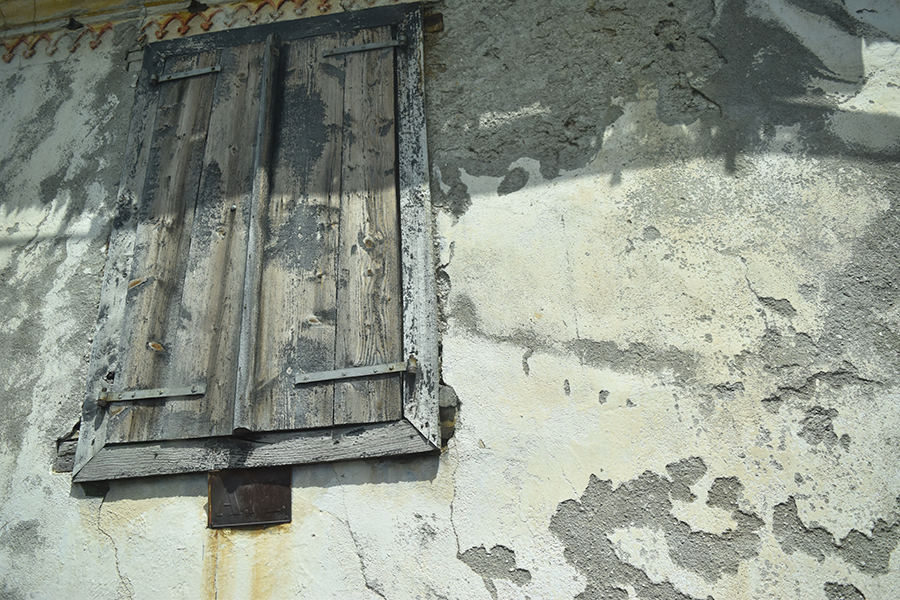After the death of 89-year-old Jeannette, my boyfriend’s neighbour in France, this last August, we were both worried about her husband, Marcel. After all, he was 95 and the two of them had been together for more than 70 years!
How would he cope with her being dead?
I’ve been with D. just thirteen years now, but even to imagine living without him is difficult. Sometimes, waking up in the middle of the night, I watch him lying there next to me, fast asleep, and I try to envision life without him, in case of… I mean, you never know. But I don’t succeed -by no means, however hard I try. The concept has grown completely alien to me like it never existed.
Happy Ever After
The romance of Jeannette and Marcel started at a welcome-home party for French soldiers after World War Two. They’d been sitting opposite each other during the communal dinner on the square in the middle of the village. Both were totally different characters: he was calm, modest, a great listener –cultivated too, she was outspoken, full of jokes and she loved to talk. Their shared meal was the onset of their love and the beginning of a life together.
When Marcel told us about that evening more than 73 years ago, there was a smile around his lips, like he could not help it. He always smiled regarding Jeannette, often shaking his head a bit. Obviously, she could still amaze him, not just in life, but being dead too.
Dark Nights
Sure, there were children and grandchildren and great-grandchildren. His oldest son was only a few country lanes away. His oldest daughter, his favourite, lived with her husband on the other side of the road; they both kept an eye on things. One of his grandsons, an agriculteur as well, was his closest neighbour, less than a hundred meters away.
But nights are long and dark in the countryside, especially when it’s winter. Besides, summer or winter, most people work countless hours, even on weekends, and there is hardly any time left.
Pain and Anger
At the same time predictions were bleak with regard to his wife’s death. For some 10 to 15 % of the population in general, it’s quite difficult adapting to the new situation. They feel they have lost a part of themselves, accompanied by intense emotional pain, anger, denial and blame.
I read about this 73-year-old woman from New York City who, after losing her husband, had been mired in grief for nine years. Even after she’d seen a therapist, she still suffered from nightmares and couldn’t bear to hear arias from their favourite operas. Although she volunteered to get herself out of the house, travelled, even started dating again, the pain just didn’t go away, she said.
Apparently, there are tens of millions of people worldwide struggling with the death of someone close to them. It’s called Prolonged Grief Disorder by the Centre for Complicated Grief of the Columbia School of Social Work in New York City. And it’s in particular seen with older people, because of the many losses they suffer at that age.
The End?
D. and I were even more worried. Would the death of his wife, Jeannette, mean the end for Marcel as well?
How would he be able to live without her?
The first one or two months he would hardly leave his house, except to close the worn grey shutters at night and open them in the morning. His car stayed in the barn. He would not be at his regular place in the kitchen, where he and his wife spend most of their time. He was found in the salon instead, opposite the kitchen, sitting there even more quiet than usual, staring into the distance –the predictions seemed right.
His oldest daughter would cook lunch for him, as well as dinner, and she and her husband shared most meals with him, to prevent him from starving himself.
D. went to see him almost daily. Often right after waking up in the morning, sometimes towards the end of the day, before the house was locked up for the night.
Change
Suddenly, one morning, things changed. Totally unforeseen. From one day to the next D. found him back at his usual place at the kitchen table, listening to the radio. Some days later he would be sitting in an easy chair near the window, reading. Another time you would hear his favourite music coming out of the house again. He was also seen walking in the field behind the farm with his oldest daughter.
What was going on?
He offered an espresso again when D. dropped bye -he had always made excellent coffee, as well as been quite a cook. There were more and more of these moments of marvelling; things were coming back, it seemed. He was coming back.
Finally, one Sunday morning, he took his car out of the barn and drove slowly to the bakery in the village, careful -as if he was trying to remember everything. He went to buy a baguette like he used to do. From then on he was seen on his way to the bakery again every day…
Life was no longer on hold for him.


Ekaterina 02-10-2018 @ 19:12
What a beautiful and moving story! I am glad that Marcel found strength to go on with his life. I’ve been reading one psychologist and she says that when one manages to move on after the death of the loved one and still enjoy life, it is also showing respect for the dead, rather then slowly dying from grief.
Alexa Khan 02-10-2018 @ 19:26
Thank you so much, Katia! Indeed, I’m really happy to see him pottering around again. And it’s an interesting thought, showing respect by moving on instead of dying from grief… Hard, of course, but it’s maybe an obligation towards the dead loved one.
Elizabeth 01-11-2018 @ 19:18
Such a beautiful story! It must be difficult for Marcel.. although I can’t help but wonder what it must be like: such a long life of love with one person.
It’s almost the stuff fairytales are made of.
Alexa Khan 01-11-2018 @ 23:56
Thank you for your compliments, Elizabeth! He’s a very special man, Marcel, and easy to admire.